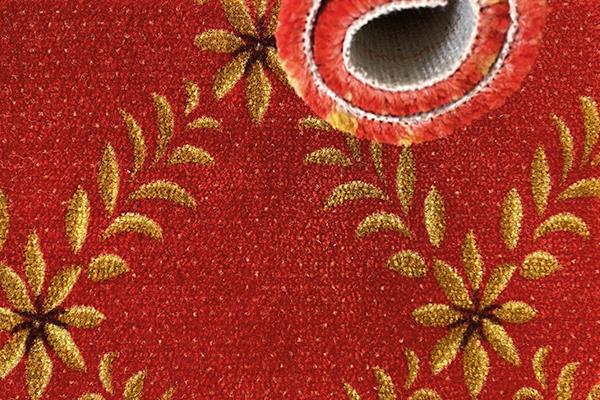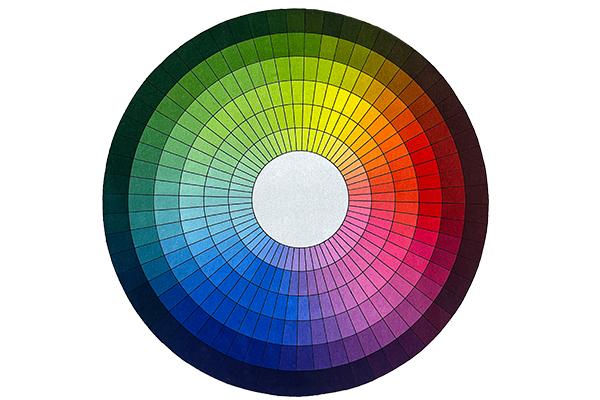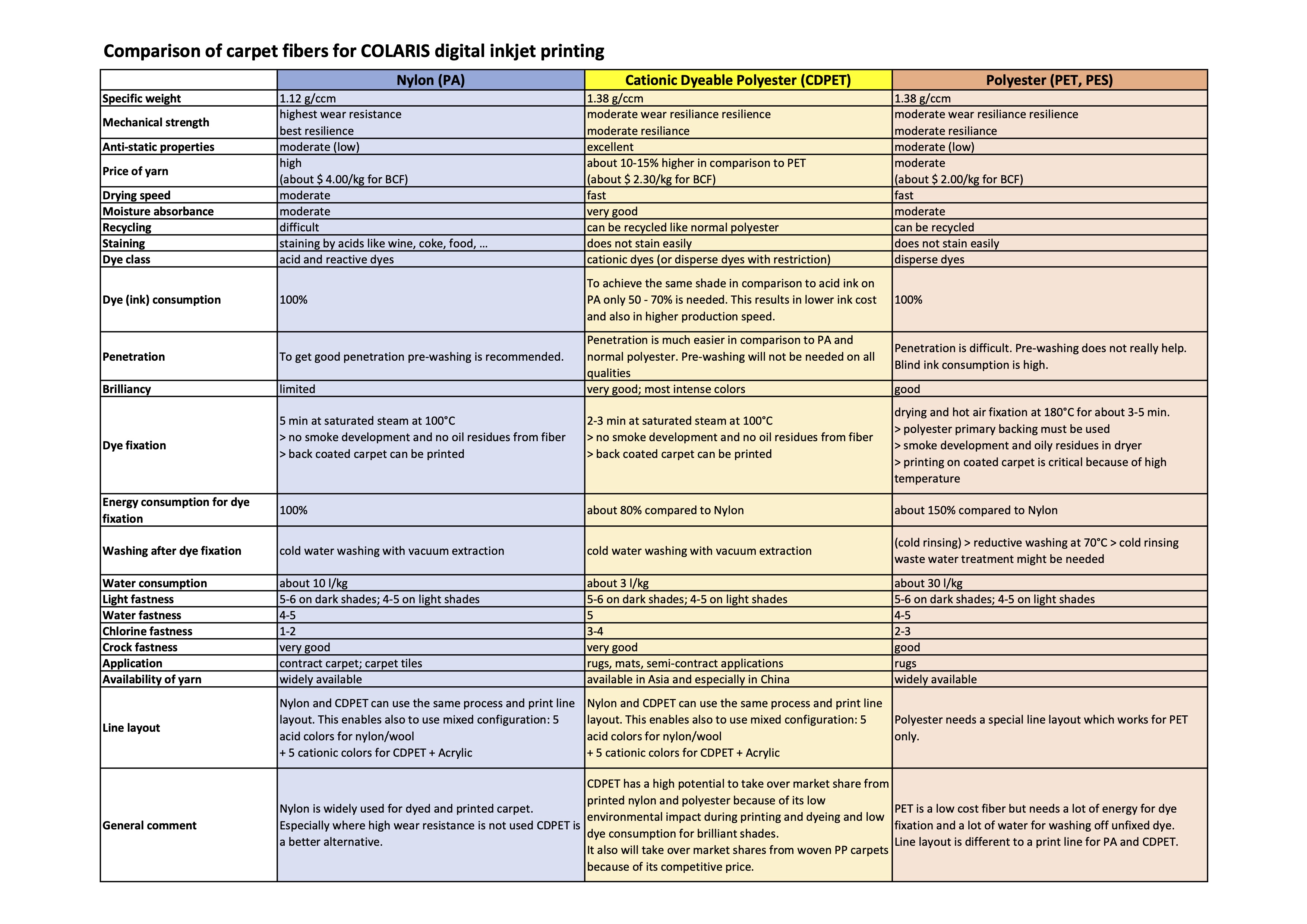Nylon, Polyester or Cationic Polyester?
There are a lot of discussions around different fibers, and which is best for printing. In the following we try to highlight strong and weak points on polyamide, polyester and cationic polyester.
Printing on polyamide (nylon) is most common in the carpet industry. During the last couple of years, printing on polyester has also become more and more popular.
The reason is that polyester is cheap, and a lot of recycled PET bottles also need a final destination. Cationic polyester is new in the carpet industry – but has a bright future because it is easy to dye and print. Pricewise it is somewhere in between polyester and nylon.
These are the main advantages of the different fibers:
Nylon / Polyamide:
- Robust fiber – perfect for contract carpet (+)
- Easy to print (print> steam > wash > dry) (+)
- Medium to good light fastness if printed with selected dyes; good wash fastness; poor chlorine fastness (+)
- Everywhere available (-)
- Higher price in comparison to polyester and CDPET (-)

Normal Polyester:
- Medium to good light fastness; good wash fastness; poor chlorine fastness (+)
- Everywhere available (+)
- Low price (+)
- Has mechanical limitations (-)
- Difficult to print (print > dry > high temperature fixation at 160-180°C> reductive washing > dry (-)
Cationic Dyeable Polyester:
- Very easy to print with cationic dyes (print > steam> wash > dry) – print process is identical to polyamide printing (+)
- Very bright and deep colors (+)
- Easy to penetrate in comparison to normal polyester (+)
- Has mechanical limitations (-)
- Popular in China; not yet manufactured in Europe, India, USA and Middle East (-)
- Can be recycled together with normal polyester (-)
- Medium price (+)/(-)
We see a lot of opportunities to print on CDPET for applications like mats, rugs, and residential wall-to-wall carpets. With low amounts of ink deep shades can be used. This results also in higher print speed at lower cost (in inkjet printing a smaller number of passes are needed to get good penetration and deep colors). To fix the ink on cationic polyester fiber 3 minutes of steaming at 100°C is needed. To wash out excess dye and chemicals a simple spray and vacuum process is sufficient.
Conclusion:
Polyamide (nylon) will be the choice of fiber for contract carpet products. Normal polyester is the fiber when it comes down to price (like needlepunch carpets) As soon as cationic polyester becomes widely available it will be the first choice for rugs, mats and semi-contract applications, where deep and brilliant shades are essential at moderate cost.

Source: ZIMMER AUSTRIA Digital Printing Systems Publication




















